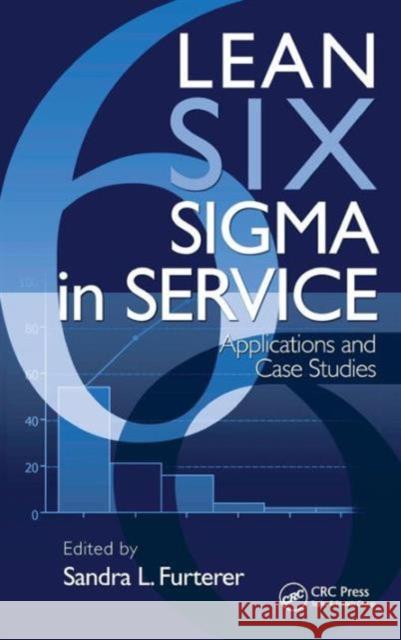Lean Six SIGMA in Service: Applications and Case Studies » książka
Lean Six SIGMA in Service: Applications and Case Studies
ISBN-13: 9781420078886 / Angielski / Twarda / 2009 / 482 str.
In real life, data is messy and doesn't always fit into normal statistical distributions. This is especially true in service industries where the variables are, well, variable and directly related to and measured by the constantly changing needs of customers. As the breadth and depth of tools available has increased across the integrated Lean Six Sigma landscape, their integrated application has become more complex. Filled with case studies using real-world data, Lean Six Sigma in Service: Applications and Case Studies demonstrates how to integrate a suite of tools to make sense of an unstructured problem and focus on what is critical to customers. Using a clean, clear writing style that is not overly technical, the author describes the Six Sigma DMAIC (Define-Measure-Analyze-Improve-Control) and Design for Six Sigma IDDOV (Identify-Define-Design-Optimize-Validate) problem solving approaches and how they can be applied to service and transaction-related processes. The case studies illustrate the application of Lean Six Sigma tools to a wide variety of processes and problems including, but not limited to financial process improvement, designing a recruiting process, managing a college's assets, and improving educational processes. Examples of tools include Pareto analysis, cause and effect analysis, failure mode and effects analysis, statistical process control, SIPOC, process flow charts, project management tools, cost of quality analysis, and Lean tools, such as 5S, 8 wastes, and the 5 whys. Ultimately, the Lean Six Sigma team must show improvement against the metrics that assess customer satisfaction. This book includes strategies for integrating Lean Six Sigma tools into measurable improvement processes and eliminating the root causes of problems. With its inclusion of case studies and an alternative approach to the material, the book provides an instant understanding of how others have successfully applied Lean Six Sigma tools. This understanding then translates into processes that can be applied to any service organization.











